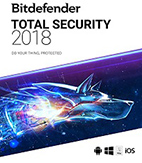- Communication, communication, communication…talk with your children about the dangers of going online and what to do if they encounter cyberbullying, pornography, unsolicited emails or are threatened in any way online.
- Set clear rules about Internet use and post them on or near the computer.
- NEVER give out personal information, including their name, age, address, telephone number, school name or family personal information in IM, chat room conversations, and newsgroups or online games.
- If they join Instagram, Facebook and other social media sites, privacy mode must be set and only allow friends they know to chat with them.
- Choose an appropriate screen name and discuss the importance of not using their real name or creating an enticing screen name like ‘sexybetty’ or ‘sweetmary’.
- Never agree to meet with anyone they meet online.
- Talk to them about the dangers of ‘Sexting’ and the impact it can have on their lives.
- Explain that people online oftentimes are not who they say they are and can entice them to provide personal information.
- Never meet with people they meet online and talk about the dangers of doing so.
- Educate them about Cyberbullying.
- Know your child’s screen name.
- Encourage them to talk to you if they receive any unsolicited emails, text messages or anything that makes them feel uncomfortable.
- Let them know you will be checking in from time to time to see what they are doing on the computer.
- If possible, keep the computer in a family room and pay attention if they close or change screens as you approach them; this is generally a sign they may be doing something inappropriate and don’t want you to see.
- Never open email or Text message from someone they don’t know…the rule is to delete any unsolicited emails and text messages.
- Never post inappropriate photos or content on social media websites.
- Discuss the dangers to them and their family if they download illegal music, photos, etc.
- Know your child’s online friends as you do their offline friends.
- Encourage your child to invite their friends to your house to play computer games.
- Limit the amount of time your child spends on the laptop/PC.
- Install child-monitoring/filtering software to monitor your child’s online activities.
- Remember any website or social media platform with a chat component could unwittingly play host to predators. Do not leave your child unattended in a social media website, even at well-known or trusted sites.
Internet Service Providers (ISP’s)
- Ask what safety features and software they provide to protect children.
- Ask what parental controls are available for parents.
- Enable Parental Control features to prevent pop-ups, virus, spyware protection, access to inappropriate websites and time limits.
- Inquire about how to report suspicious or inappropriate online activity.
Questions to ask your child’s school:
- Is computer-monitoring software installed on all computers children use?
- Are pornographic sites blocked?
- Are social media sites blocked?
- How are children’s activity on the school computers monitored?
- Does the school post kid’s photographs on their website?
- What is their policy on smartphones?
- What is their policy on cyberbullying?








